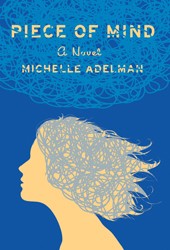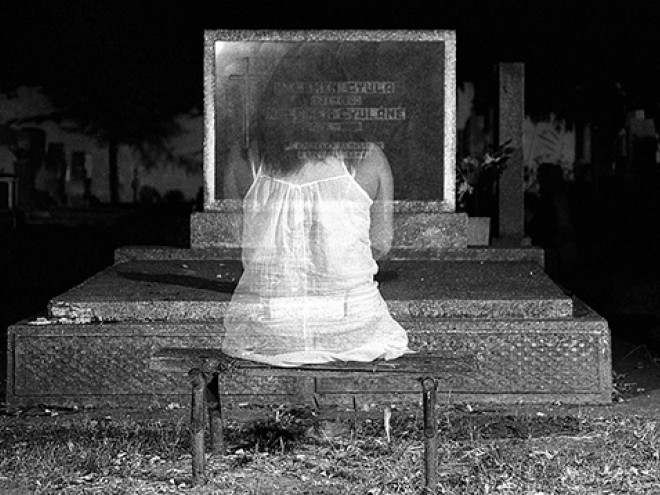Michelle Adelman’s debut novel Piece of Mind is told from the perspective of a young woman with a brain injury forced to contend with the difficulties of surviving without her parents. With the release of the novel this week, Michelle is guest blogging as a Visiting Scribe all week here on The ProsenPeople.
One of the main characters in my novel, Piece of Mind, is dead for the duration of the story on a physical level. But on a spiritual level, she’s very much alive — as a ghost.
I never doubted this was her function in the story, a mother that the protagonist needs in any form, but because this family is Jewish in the book — and because I, too, am Jewish — it raised some interesting questions in my mind about the concept of the afterlife in Judaism. Where’s the line between organized religion and spirituality? Between documented beliefs and wishful thinking?
As a child, I remember watching movies and television shows that depicted shots of sermons from preachers talking about fearing hell and hoping for heaven, and wondering how those concepts applied to us. In the Jewish day school I attended through middle school, we didn’t frequently have conversations that touched on these topics.
I do remember once being told a famous Midrash imagining an afterlife in which everyone sits around a gigantic banquet table. No one at this table can move their elbows, so it’s a challenge to figure out how to eat. As it turns out, the people who are fundamentally bad, the ones who are in ‘hell,’ starve because they can’t think beyond themselves. But the ones who are fundamentally good, who are in some version of ‘heaven,’ get to feast forever without a care because they’re able to feed each other. The simplicity of the description did leave me longing for more (where were the white-winged angels and golden harps and puffy clouds?), but I appreciated the idea of the story — that you had a chance to prove who you truly were at this final test; the concept stayed with me.
I also remembered being told on at least one other occasion that if you’re good, you can dream about getting resurrected one day by the Messiah and going to Olam Ha-Ba, the World to Come. But that raised all kinds of questions related to the connection between the soul and mind and body, questions that most of our elementary school teachers didn’t care to delve into. Mostly what I think of when I recall learning Jewish behaviors and good moral foundations relates to Olam Ha-Zeh, or this world. Don’t worry about what happens after you die, they essentially told us, because every action counts for today.
So where does that leave ghosts in Judaism?
It turns out they’re not an entirely foreign concept. The Talmud has all kinds of references to spirits, and many Jews openly believed in them in the 16th and 17th centuries. The Dybbuk, a popular play written by S. Ansky, chronicles the story of a woman possessed by a spirit who takes over a living body, and the Kabbalah has references to demons and specters in many forms.
Still, today, talk of ghosts often leads to talk of superstition and fantasy. Maybe even mental illness. But plenty of people can recount vivid experiences with apparitions they swear are real. At least for me, it’s a comfort to recognize that being Jewish doesn’t necessarily mean you don’t have the ability to see a ghost, or perhaps even become one.
Michelle Adelman received her MFA in writing from Columbia University and her MS and BS in journalism from Northwestern University. Her journalism has appeared in Time Out New York and elsewhere. She lives in the Bay Area.
Related Content:
- Leigh Stein: The Ghost
- Jeremy Dauber: If You Read Just 10 Stories by Sholem Aleichem…
- Julia Dahl: The Previous Tenant




